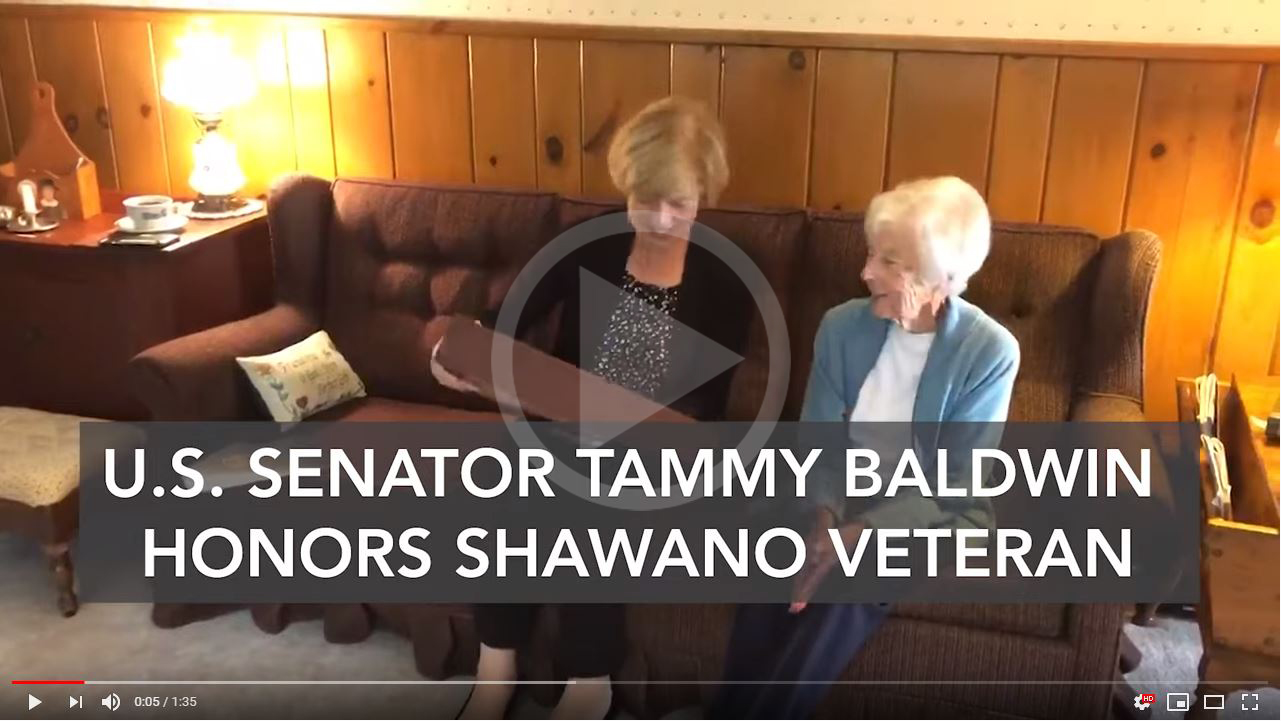11.8.19
Baldwin visited the home of Phyllis Hafemann Olson to recognize her service in the Cadet Nurse Corps during WWII
SHAWANO, WI – United States Cadet Nurses are currently not granted veteran’s status, but that didn’t stop U.S. Senator Tammy Baldwin from visiting the Shawano home of Phyllis Hafemann Olson to thank her for her service in the U.S. Cadet Nurse Corps during World War II and present her with an American flag that had been flown over the United States Capitol.
“Phyllis is somebody who stepped up at a time of great need for our nation and served her country honorably,” said Senator Baldwin. “I’m grateful I had the opportunity to join her in her home and thank her for her service and sacrifice.”
Phyllis, born in Shawano, joined the Cadet Nurse Corps in 1945 after graduating from high school and served for three years at St. Mary’s Hospital in Rochester, Minnesota. Baldwin’s visit was the result of a request from friends of Phyllis who inquired about formal recognition of her service in the Cadet Nurse Corps.
Senator Baldwin is a cosponsor of the bipartisan United States Cadet Nurse Corps Service Recognition Act that would provide Cadet Nurses with veteran’s status in order to obtain burial benefits from the Department of Veterans Affairs and would allow the Secretary of Defense to provide honorably discharged Cadet Nurses with a service medal.
United States Cadet Nurse Corps (CNC) was authorized by Congress and signed into law in July 1943. Its purpose was to help alleviate the nursing shortage that existed during WWII. The CNC fell under the Public Health Service and the program was open to all women between the ages of 17 and 35 who were in good health and had graduated from an accredited high school. The recruiting target was the high-school graduate but college women were also recruited.
The cadets came from locations across the nation and from all backgrounds. The CNC was the largest of the federal nurse-training programs; it allowed young women to serve their country in uniform and without discrimination. Of the 1,300 schools of nursing in the country, 1,125 participated in the program. The CNC operated from 1943 until 1948; during this period 179,294 student nurses enrolled in the program and 124,065 of them graduated from participating nursing schools. The American Hospital Association credited the cadet student nurses with helping to prevent the collapse of civilian nursing in the U.S. during the war.
Photos from the visit are available for download here.
